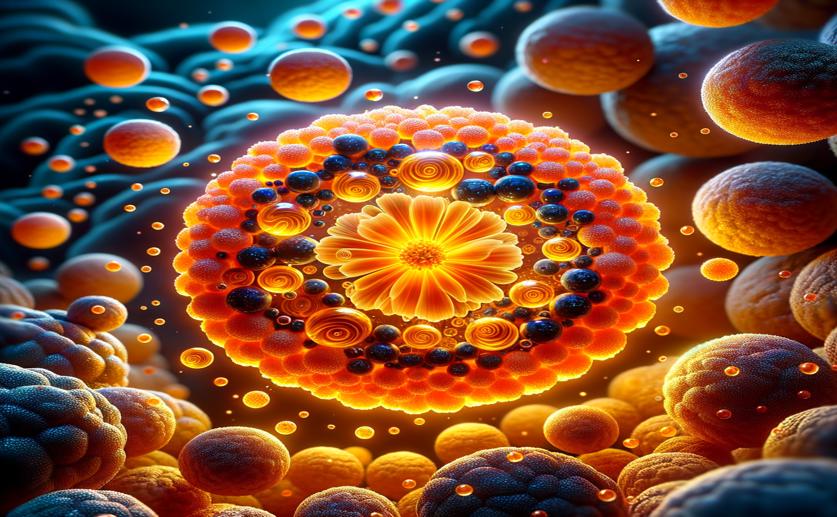
Chitosan Particles for Delivering Yarrow Extract to Combat Colon Cancer Cells
Greg Howard
3rd July, 2024

Image Source: Natural Science News, 2024
Key Findings
- Researchers at Universidad Autónoma de Madrid encapsulated yarrow extract in chitosan-based particles to target colon cancer cells
- Spray-drying microparticles showed over 94% encapsulation efficiency, making them highly effective in delivering the extract
- The encapsulated yarrow extract demonstrated controlled release in gastrointestinal conditions, protecting the active compounds through digestion
References
Main Study
1) Design of chitosan colon delivery micro/nano particles for an Achillea millefolium extract with antiproliferative activity against colorectal cancer cells.
Published 2nd July, 2024
https://doi.org/10.1080/10717544.2024.2372285
Related Studies
2) Recent advances in colon drug delivery systems.
3) Antiproliferative and cytotoxic effects of green coffee and yerba mate extracts, their main hydroxycinnamic acids, methylxanthine and metabolites in different human cell lines.
4) Chitosan based micro- and nanoparticles for colon-targeted delivery of vancomycin prepared by alternative processing methods.
5) Natural extracts into chitosan nanocarriers for rosmarinic acid drug delivery.



 29th June, 2024 | Jenn Hoskins
29th June, 2024 | Jenn Hoskins